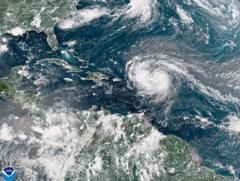A recent ruling by a German court marks a pivotal moment in climate litigation, dismissing a decade-old lawsuit from a Peruvian farmer but clarifying legal avenues for future cases. The Hamm Higher Regional Court’s decision on Wednesday followed a suit filed by Saúl Luciano Lliuya, who sought damages over the flooding threats posed by melting glaciers near Huaraz, Peru. Despite the court not ruling in favor of Lliuya, the presiding judge, Rolf Meyer, stressed that German civil law does allow for holding companies accountable for their emissions’ global impacts.
"For the first time ever, a higher European court has affirmed that major polluters can be responsible for the effects of their greenhouse gas emissions," remarked Roda Verheyen, legal counsel for Lliuya. This ruling is viewed as a critical turning point that could inspire similar climate lawsuits against fossil fuel companies and contribute to the global transition away from fossil fuels.
Lliuya’s case against RWE, Germany's leading energy provider, relied on the assertion that the company was responsible for approximately 0.5% of the global emissions driving climate change. He contended that the corporation should cover an equivalent percentage—around $19,000—of the costs required to mitigate the risk from Lake Palcacocha. The court conducted a thorough examination, including site visits and expert hearings. However, expert evaluations concluded that the likelihood of a flood specifically affecting Lliuya’s property due to climate risk stood at merely 1% in the next 30 years.
As climate change litigation evolves, this court ruling lays the groundwork for future accountability measures targeting fossil fuel firms, highlighting the potential for broader legal challenges regarding environmental impacts.



















